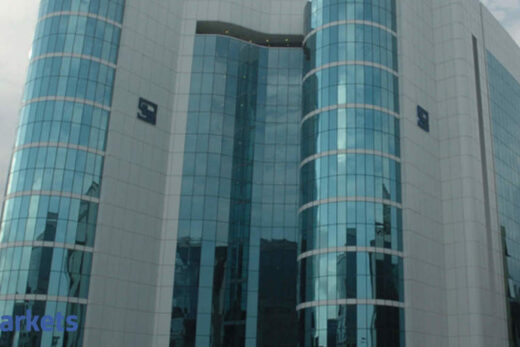This has made some existing investors wonder whether they should subscribe to the forthcoming Rs 21,000 crore rights issue, whose dates will be decided soon.
Analysts said not only Bharti Airtel, but telecom stocks globally have been out of favour globally. If anything, Bharti has performed well among them, they said.
Bharti’s balance sheet is well-funded, even if it is no match to Jio’s. The impending 5G spectrum action and capex needs could have prompted the telecom major to go out for fundraising, analysts said, noting the Sunil Bharti Mittal company can comfortably carry out its debt obligations for the next two years on its own. On the face of it, they see the fundraising as a positive.
The telco will hold an investor call on Monday from 2:30 pm. It will be chaired by Chairman Mittal, along with MD & CEO Gopal Vittal, Group Director – Strategy and Business Development Harjeet Kohli and CFO Badal Bagri.
The Rs 21,000 crore rights issue is priced at 9 per cent discount to the prevailing market price. An investor will have to pay 25 per cent on application and the rest 75 per cent will be paid in two installments based on the company’s requirements within an overall time horizon of 36 months.
Investors would receive one share for every 14 equity shares, implying 7 per cent dilution. The promoter of the company will subscribe to the full extent of its aggregate right and any unsubscribed shares in the issue.
“We believe 7 per cent dilution over three years with 55 per cent of capital coming from the promoter will be viewed positively by investors,” said Edelweiss Securities.
Edelweiss said Bharti has repayment obligations of Rs 18,400 crore in FY22 and Rs 10,000 crore in FY23, which can be easily funded by expected Ebitda of Rs 54,900 crore and Rs 65,600 crore, respectively.
“While its balance sheet position is comfortable, it is not as strong as RJio’s–its main competitor. Hence, we believe Bharti is readying for the impending 5G spectrum auction and accelerated capex, if required. At this juncture, we will watch capital allocation closely and any expenditure on increasing capacity will be viewed positively. However, any capital allocation to the value chain, such as an additional stake in Indus Towers, etc will be viewed negatively as it does not increase the network’s capacity,” Edelweiss said.
Stock’s poor show
Emkay Global said, in a bid to understand Bharti Airtel’s stock performance even after the further weakening of Vodafone Idea’s financial position and selective tariff hikes, it did an analysis of the financial performance and stock price returns of global telecom operators across 12 markets and 24 companies.
The conclusion that it derived is: over 60 per cent of the companies significantly underperformed the respective regional indices over both the near- and long term. The remaining ones managed to outperform only intermittently, implying weak investor interest in the sector globally.
In the case of Bharti, there has been strong interest from DIIs, but FII participation has been sporadic and weak so far, it said.
A low-single digit growth in revenue and Ebitda in the last 10 years, capital-intensive nature of the business, fast technology changes, sub-par return ratios, high competitive intensity and capital allocation strategies could all be attributed to telcos’ poor show globally.
“While Bharti, too, is not different from its global peers in long-term (5-10 year) stock underperformance, it has outperformed (by 22-37 basis points) the Sensex in the last 2-3 years, after tariff hikes and amid the possibility of a duopolistic market post substantial weakening of VIL’s financial position. Bharti’s stock returns are also higher than the global average across all time frames, except on a 10-year basis,” Emkay said.
What analysts said
Edelweiss said fundraising was not necessary at this juncture, but it does provide Bharti with the necessary ammunition in case of an aggressive 5G rollout.
Apart from the tariff of the 4G prepaid subscribers, the Street will be keenly watching deployment of these funds, it said, adding that it does see a weak balance sheet of Vodafone Idea (VI) to provide an opportunity for Bharti and RJio to significantly ramp-up their market shares.
“We believe Bharti’s investments in the network and strong balance sheet will help it garner higher quality subscribers, thereby also driving up its market share gains. Bharti continues to remain our top pick in the sector,” Edelweiss said.
For Emkay, Bharti remained its prefered bet in the telecom space, given its superior and consistent execution across business segments and benefits accruing in the Indian wireless business with the weakening of Vodafone Idea.
“Having said that, the tariff hike is of supreme importance for strong free cash flow generation. Sustained re-rating of Bharti hinges on tariff hike, strict control over capex and capital allocation,” it said.
Arbitrage opportunity?
IIFL Alternative Research expects the issue to go Ex in a month’s time frame.
As an arbitrageur, an efficient way to handle it is to unwind positions before the issue goes Ex, in case futures are trading at discount or even at par as rights do not add any additional benefit in a pure arbitrage strategy, it said.
“However if one wishes to carry forward the position (if unwinding is not possible due to size or futures trading at premium), then one needs to sell additional futures on or before ex-cum-date. After the RR-Forms start trading, one can also explore arbitrage opportunities based on the carry available with relevant month futures,” it said.
RR refers to the renunciation form.
For active managers, IIFL Alternative Research said Bharti’s partly paid up issue will offer holders an opportunity to hold the stock at a lower value in the portfolio as against the fully paid up shares. The unpaid value on partly paid shares can be deployed elsewhere, it said.
What history suggests
This is the third fundraising round in the last three years after Bharti raised cumulatively Rs 42,000 crore in FY20. Including the upcoming rights issue, it will be a cumulative 46 per cent dilution in less than three years, Motilal Oswal Securities said.
“The proactive fundraise certainly helped it to compete aggressively in a hypercompetitive market environment, winning nearly 500 bps market share, with steady 4G subscriber growth. Core net debt reduced by 22 per cent to Rs 88,300 crore, with a net debt-to-Ebitda of 2.9 times,” Motilal said.
“The unexpected capital raise may cause a negative reaction in the short term, but we see a good earnings growth opportunity over the next 12 months,” it said.
CLSA said the rights issue came in on unexpected lines but it has maintained buy on the stock with a target of Rs 780.



